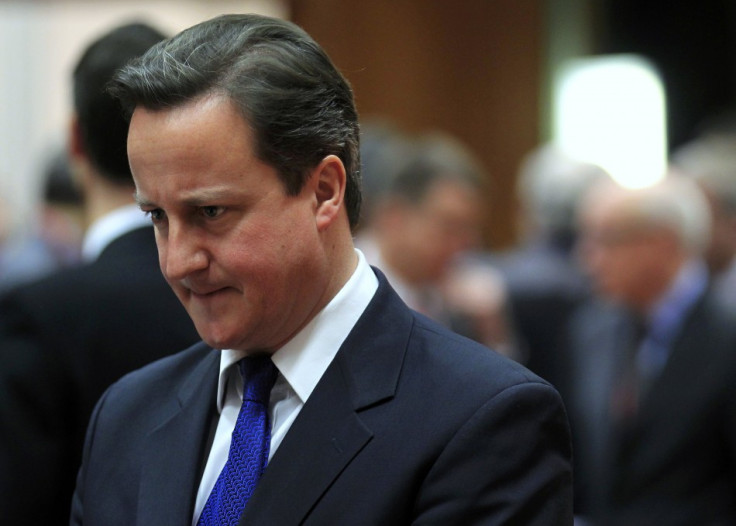Tory Eurosceptics Angry over Cameron U-turn

The prime minister, David Cameron, has angered backbench MPs by watering down his controversial position of vetoing the use of EU institutions for the fiscal pact of 25 countries.
When he made his dramatic use of the veto last month to block a new treaty on closer financial harmony, he said the European Commission and the European Court of Justice could only carry out policies applying to all 27 member states. The Czech Republic has also refused to sign the co-operation agreement.
But at Monday's EU summit in Brussels, Cameron did not press his case against the use of the institutions and said Britain would only challenge decisions if its interests were threatened. His modified stance has sent rumblings through the backbench 1922 Committee.
"We don't want to hold up the eurozone doing what is necessary to solve the crisis as long as it doesn't damage our national interests, so it's good that the new treaty states clearly that it cannot encroach upon the competences of the union and that they must not take measures that undermine the EU single market," he said.
"The key point is what is in our national interest, which is for them to get on and sort out the mess that is the euro. We will be watching like a hawk and if there is any sign they are going to encroach on the single market we will take the appropriate action, if I may put it that way.
"The principle that the EU institutions can only be used with the permission of 27 [member states] has not changed. In as much as this [new treaty] is about fiscal union, fine; if it encroaches on the single market, not fine."
Tory MPs who were jubilant after Cameron wielded the veto voiced their fears ahead of the summit that the prime minister would allow EU institutions to be used to police the new pact. The matter is likely to be discussed at the 1922 Committee. Cameron will report back to the Commons on the latest summit.
Labour leader Ed Miliband said Cameron lost the opportunity to defend Britain's interests in negotiations when he walked out of talks on the new treaty in December.
"If you walk away from the negotiating table it is very hard to secure a good deal for your country," Miliband said. "He went into these talks saying his real worry was about financial services and how that would be affected if other countries went ahead. He has secured no extra protections for financial services."
© Copyright IBTimes 2025. All rights reserved.





















